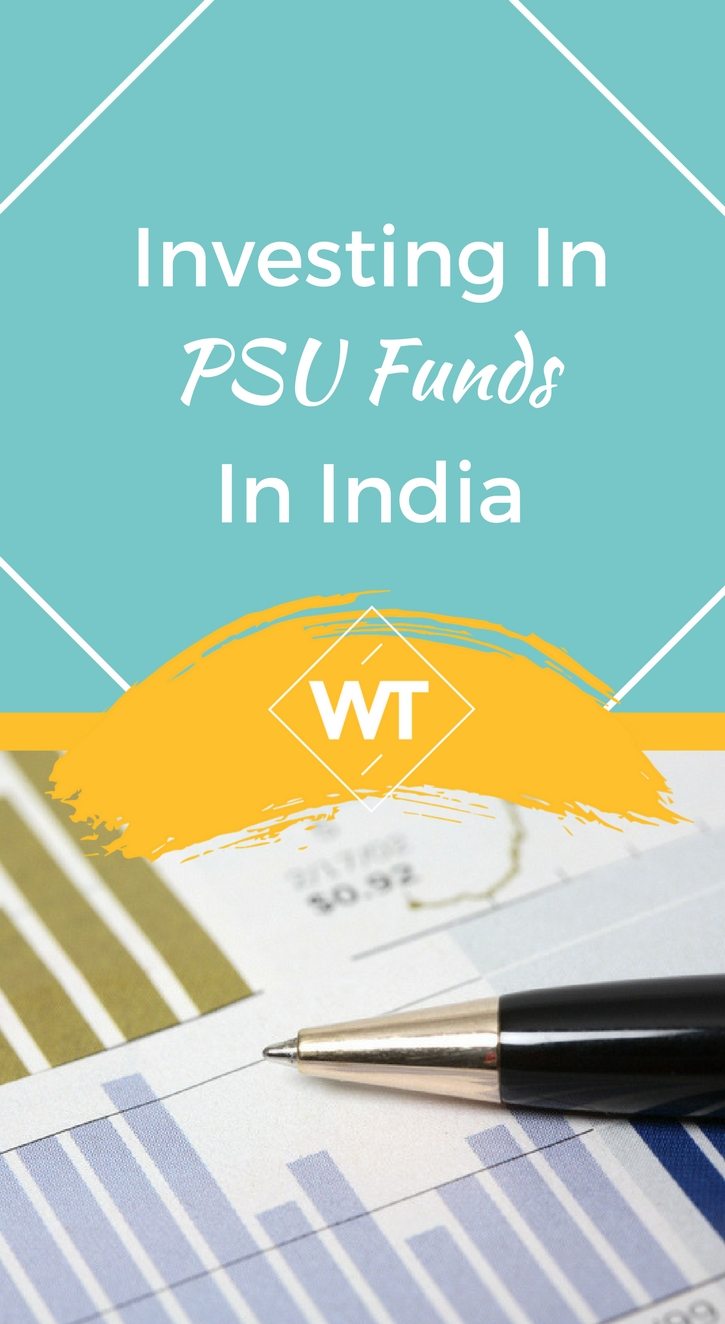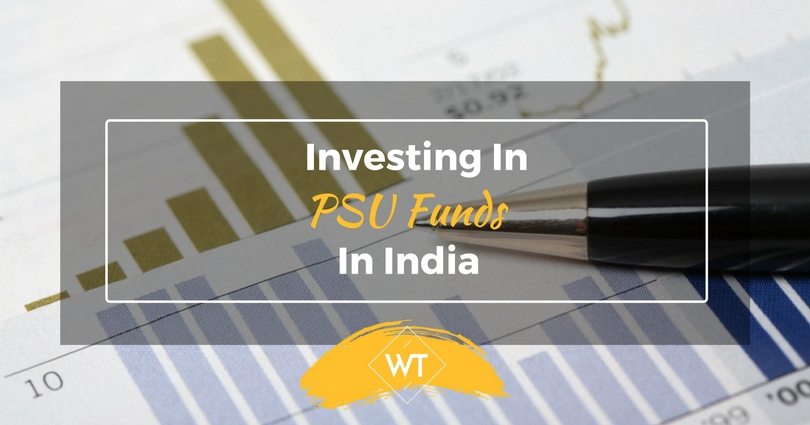Investing in PSU Funds in India

We have discussed the basics of mutual funds and the various types of mutual funds in the past. The reader must be aware that there are multitudes of funds available. The variety is not only in the companies that offer these funds but also in the sector, types and time frame. Today’s discussion focuses on PSU Funds.
Before we discuss about the investment scenario for these finds we need to understand what PSU Funds are. In India PSUs or Public Sector Undertakings are the government owned companies. The government (Central or State or both) owns 51% or more of the equity of these companies.
PSUs are generally formed in core infrastructure sectors like coal, petroleum, power etc which require huge investment or are important for the growth or are of strategic importance. The aim behind forming these undertakings was to generate employment, accelerate growth, and utilize natural resources in an optimum manner and save foreign exchange and so on.
The general perception for these companies is that they are non-profit making bureaucratic mammoths run on the fancy of politicians. This was true till the recent past but this style of functioning has changed over the past.
What are PSU Funds?
Mutual Funds invest in shares/securities with a preset aim and plan. Thus an Infrastructure fund will invest in stocks of only infrastructure companies. So a PSU fund will invest in securities of only PSUs. These PSUs will be across sector as the concentration is not on any one sector.
Owing to this reason, PSU funds are categorized as diversified equity; you will find limited number of options if you are looking at investing in PSU funds. PSU ETFs are also available in the market.
Investment Perspective for PSU Funds
As we stated earlier PSUs come with some negative baggage and perceptions but this perception has changed over time and is slated to change more in the near future. For the period between October 2010 and August 2013 the BSE PSU fund was in doldrums as the public sector valuations were very low. Below is a BSE PSU Index for last five years. Data source is NDTV Profit.
The change in trend was due to the expected change in Government (which did happen). With the change of guard the PSUs are expected to better. As you see in the above graph the peak was immediately after elections (which were in May) sometime in June; after which the peak tapers but still manages to hover around 8000.
If the PSUs do well then the PSU funds are also expected to do well. In the last year the PSU funds gave 4-5% higher returns when compared to Sensex or Nifty. With the new government in place the hopes are intact and the government is expected to divest from a lot of these companies.
Though right now the hopes are up but one must always remember that these companies are government owned and government led. Thus the role of professional management will always be limited. Change in government strategies or delay in them will impact the working of these companies and also the performance of the funds.
Investing in PSU funds means that though you are diversified industry wise but you are concentrated thematically (as they are all PSUs). So when investing keep in mind that right now the signals seem to be positive as with divestment you can expect less government interference and more professional management.
However most PSU funds are less than five years old so looking at their past performance beyond five years is not possible but the BSE PSU Index is an indicator that the PSUs have seen their share of good and bad market days.Investing in PSU funds cannot be a blanket choice; this means that you should not be indifferent to which PSU fund you invest in.
Look at the portfolio; in the past funds that have ONGC and Coal India exposure have done well. Also do look at the company floating the fund.
Also do look at important indicators that indicate the health of the fund. Above all do remember mutual funds may or may not do well so invest as per your risk appetite only.









Leave a Reply